- History of using CES technology for treatment of insomnia, migraine, stress, depression
- CES devices in ACTUAL TREATMENT
Cranial Electrotherapy Stimulation (CES) devices have been used by various healthcare providers, including the Department of Veterans Affairs (VA), to treat conditions such as anxiety, insomnia, post-traumatic stress disorder (PTSD), and depression in veterans and active-duty service members. - CES devices in Clinical Studies:
❖ Improvement in Cognitive Function
❖ Neuroplasticity and Brain Connectivity
❖ Effects on Neurotransmitter Levels - Introducing the One by JBA Model JBA-SM: Your Portable Brain Restore Device
Are you tired of feeling overwhelmed by stress, struggling with insomnia, or battling the blues? Say hello to the One by JBA Model JBA-SM – your ultimate brain restore device. Utilizing Cranial Electrotherapy Stimulation (CES) technology, this compact and innovative device offers a simple yet effective solution to help you reclaim your mental well-being from the comfort of your own home.
Benefits:
- Stress Relief: Experience a sense of calm and relaxation as the One by JBA Model JBA-SM gently soothes your frazzled nerves and eases tension throughout your body.
- Improved Sleep: Say goodbye to restless nights and hello to restorative sleep. The One by JBA Model JBA-SM helps regulate your sleep patterns, making it easier to fall asleep, stay asleep, and wake up feeling refreshed.
- Mood Enhancement: Lift your spirits and banish the blues with the mood-enhancing effects of CES therapy. Feel more positive, optimistic, and resilient in the face of life’s challenges.
- Brain Restoration: Give your brain the boost it needs to function at its best. The One by JBA Model JBA-SM promotes neuroplasticity and cognitive function, helping you think clearer, focus better, and perform at your peak.
Introducing the One by JBA: Your Solution to insomenia, migrain, stress, depression and Financial Freedom!
- For Personal Use: Experience the transformative power of Cranial Electrotherapy Stimulation (CES) with the One by JBA Model JBA-SM. Designed to alleviate symptoms of insomnia, migraines, stress, and depression, this compact device offers targeted relief at your fingertips. Visit jbabrands.com to purchase your very own One by JBA Model JBA-SM and take control of your health and well-being today!
- For Affiliate Opportunities: Join our mission to empower individuals to live happier, healthier lives by becoming an affiliate for One by JBA. Share the benefits of the One by JBA Model JBA-SM with your network and earn money while helping others find relief from their symptoms. Whether you’re a healthcare professional, influencer, or passionate advocate for wellness, our affiliate program offers a rewarding opportunity to make a difference in people’s lives. Visit jbabrands.com to learn more and sign up as an affiliate today!
1. History of using CES technology for treatment of insomnia, migraine, stress, depression
Cranial Electrotherapy Stimulation (CES) is a non-invasive form of neuromodulation that involves delivering low-level electrical currents to the brain via electrodes placed on the scalp. While primarily used for conditions like anxiety, depression, and insomnia, CES has also been explored for its potential benefits in managing migraine headaches and stress. Here’s a brief overview of its history in treating these conditions:
Insomnia:
- CES was first introduced as a potential treatment for insomnia in the 1960s. Early research suggested that electrical stimulation of the brain could help regulate sleep patterns and improve sleep quality.
- Over the decades, numerous studies have investigated the efficacy of CES for insomnia, with many showing promising results. CES is thought to influence neurotransmitter levels and brainwave activity, leading to relaxation and improved sleep.
- While CES devices for insomnia are available on the market, their use may vary depending on individual response and adherence to treatment protocols.
Migraine:
- ES has been explored as a complementary therapy for migraine headaches, with the aim of reducing pain intensity and frequency.
- Research on CES for migraine management is somewhat limited compared to other applications. However, some studies have suggested that CES may help modulate pain perception and reduce migraine-related symptoms.
- The exact mechanisms by which CES exerts its effects on migraine are not fully understood, but it is believed to involve alterations in brain activity and neurotransmitter levels.
Stress and Depression:
- CES has been extensively studied and used as a treatment for stress and depression since its introduction. The rationale behind its use lies in its ability to modulate the brain’s electrical activity and influence neurotransmitter release.
- Research on CES for stress and depression has shown promising results, with many studies reporting improvements in mood, anxiety levels, and overall well-being.
- CES is often considered a safe and well-tolerated intervention for stress and depression, particularly for individuals who may not tolerate or respond well to traditional pharmacological treatments.
In summary, CES technology has a history of use in treating insomnia, migraines, stress, and depression, with varying degrees of success depending on the condition and individual response. While CES may not be a standalone treatment for these conditions, it can be a valuable complementary therapy when used in conjunction with other interventions. As research in this area continues to evolve, CES holds promise as a non-invasive and drug-free option for managing a range of neurological and psychiatric disorders.
2. CES devices in ACTUAL TREATMENT
Cranial Electrotherapy Stimulation (CES) devices have been used by various healthcare providers, including the Department of Veterans Affairs (VA), to treat conditions such as anxiety, insomnia, post-traumatic stress disorder (PTSD), and depression in veterans and active-duty service members.
3. CES devices in Clinical Studies:
❖ Improvement in Cognitive Function
❖ Neuroplasticity and Brain Connectivity
❖ Effects on Neurotransmitter Levels





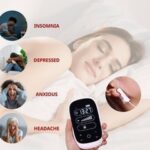
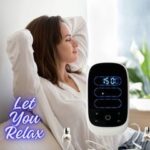
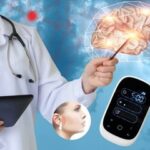

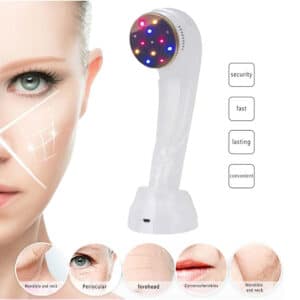


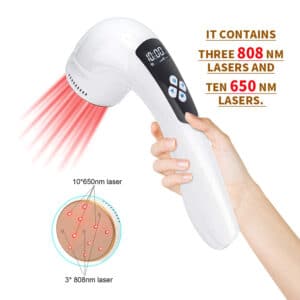
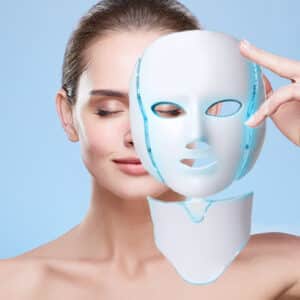
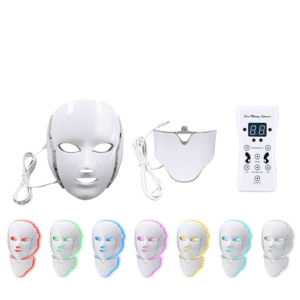

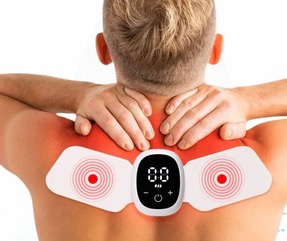
Reviews
There are no reviews yet.